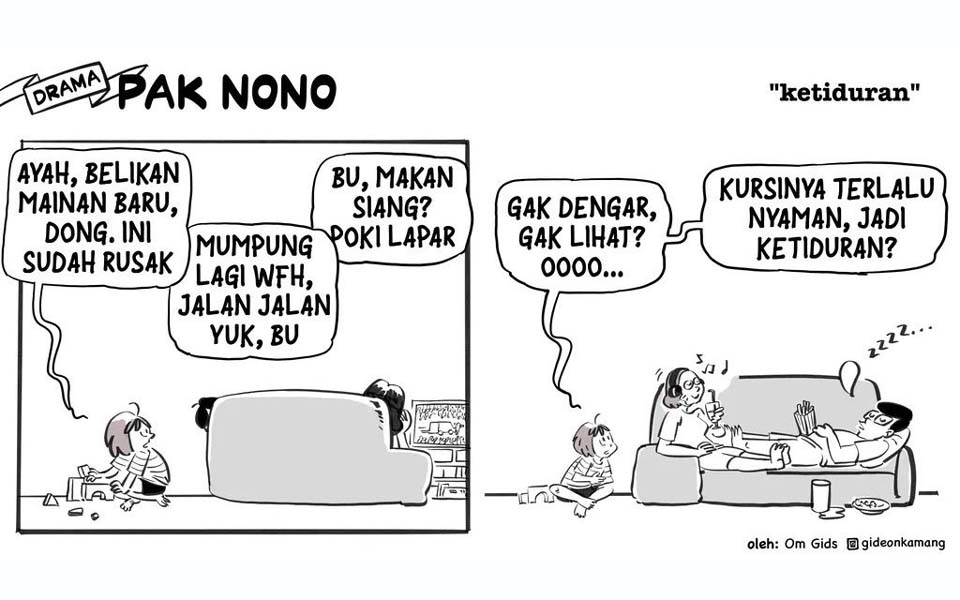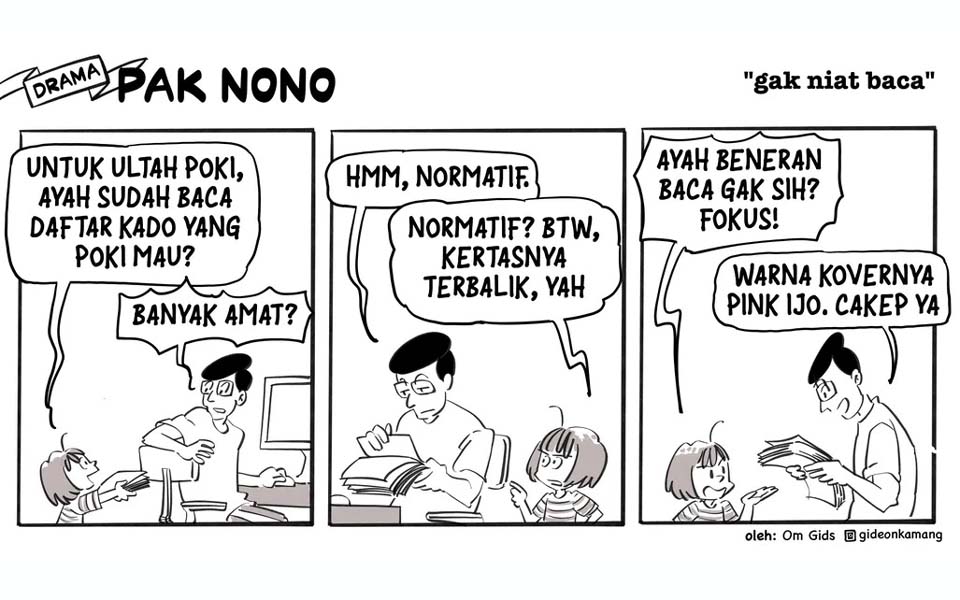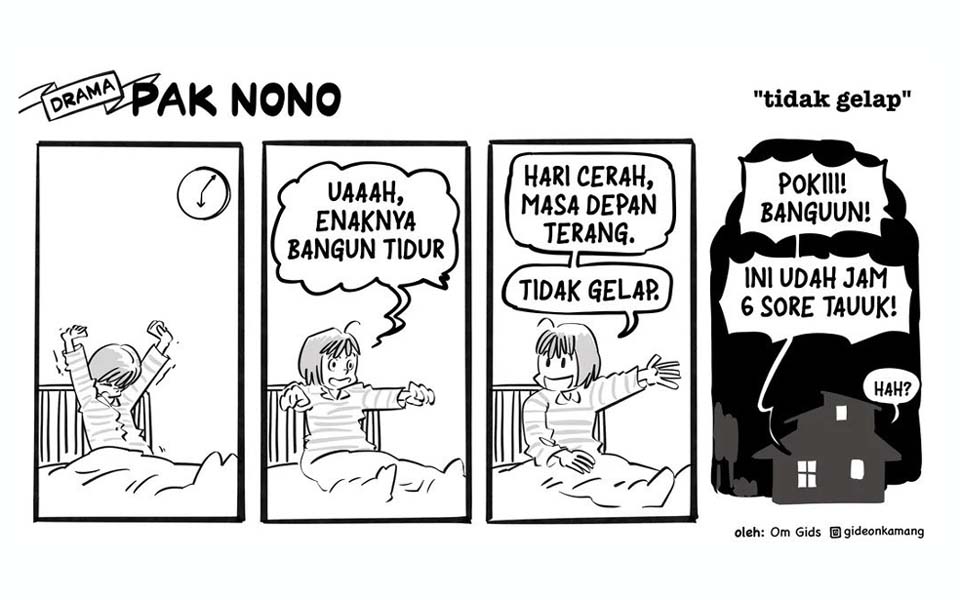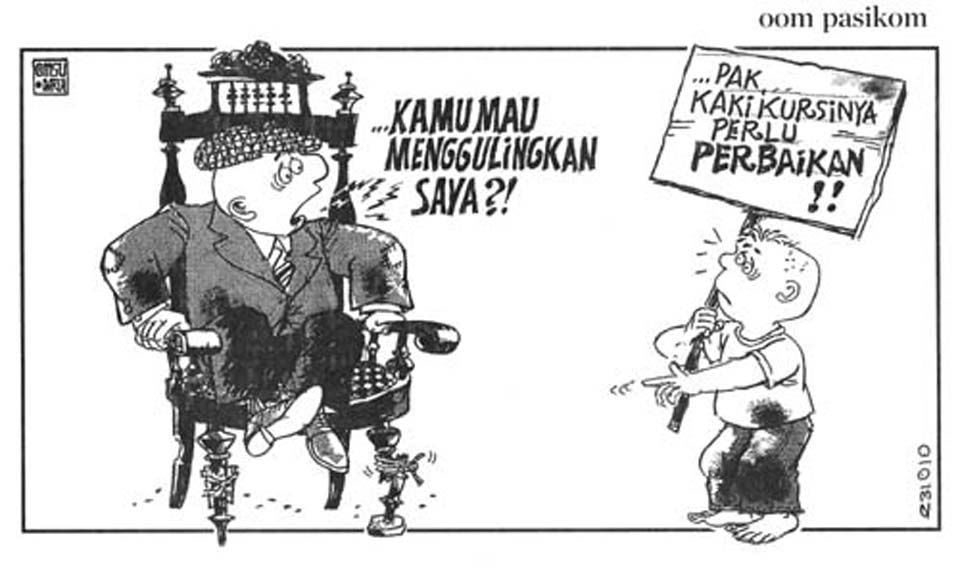
Poki: Dad, buy me a new toy, this one's broken already. Take advantage of working from home, let's go for a trip. Mum, what about lunch, I'm hungry. Not listening, not seeing, ooh, the seat's too comfortable, so you've fallen asleep.
The wave of angry and sometimes violent public protests that erupted around the country in recent weeks should have been a wake-up call for the government and lawmakers and a jarring reminder of what happens when festering discontent is ignored for too long.
From Jakarta to Medan, Makassar to Malang, anger over skyrocketing food and fuel prices, wage stagnation, job insecurity, tone-deaf policymaking and deepening inequality spilled onto the streets.
What began as protests over lawmakers' bloated housing allowances quickly escalated into broader demands for justice, decency and state accountability after a police vehicle at a protest near the national parliament ran over a motorcycle online taxi driver and killed them.
As public anger over the killing spread, protesters began targeting regional parliaments and police stations around the country – many of which were ransacked and torched – and for the first time mobs looted the homes of several lawmakers and the finance minister.
But rather than addressing the grievances that were behind the protests, government officials including President Prabowo Subianto and National Police Chief Listyo Sigit publicly stated that the unrest was orchestrated or funded by foreign agents and powers who, Prabowo claimed, do not want to see Indonesia rise.
Prabowo even went as far as accusing demonstrators of treason and terrorism alleging that the protests were manipulated, paid for and funded by corruptors, who want to keep Indonesia in turmoil and claimed that non-governmental organisations (NGOs) that promote democracy, human rights and press freedom are being funded by foreign forces seeking to divide the nation.










